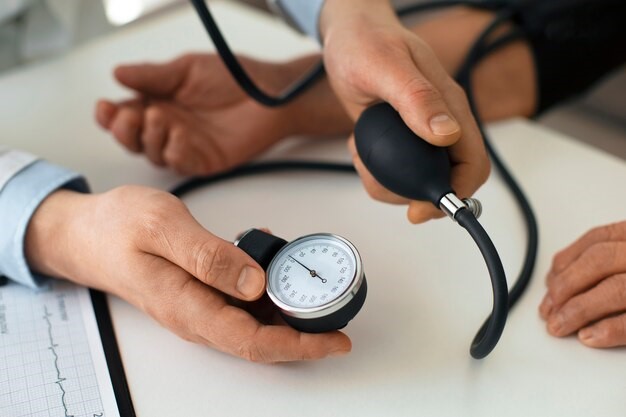How Low Blood Pressure Impacts Your Health

Low blood pressure, also called hypotension, is a condition where blood pressure readings are lower than 90/60 mmHg. This may seem ideal, but for some people, low blood pressure can cause troublesome signs and symptoms. If ignored, it can negatively impact health and quality of life. Luckily, certain supplements may help boost blood pressure to healthier levels.
What Causes Low Blood Pressure?
Some common causes of low blood pressure include:
- Dehydration
- Prolonged bed rest
- Medications like diuretics or beta blockers
- Nutrient deficiencies
- Endocrine disorders
- Nervous system disorders
For others, hypotension runs in their family. Understanding the root cause can guide appropriate treatment options.
Signs and Symptoms
Since our bodies are exceptional at self-regulating, low blood pressure may go unnoticed at first. As blood flow to vital organs declines, subtle symptoms like these may appear:
- Dizziness or lightheadedness, especially when standing up
- Blurry vision
- Nausea
- Fatigue
- Fainting or nearly fainting
These cues alert us that something is off. Tuning into them and making proactive adjustments can optimize health.
Health Risks
If low blood pressure is left unchecked for too long, it can lead to:
- Falls or injuries from fainting
- Dehydration and electrolyte imbalances
- Heart, kidney and brain damage
- Pregnancy complications like low birth weight
Boosting blood pressure to a healthy range can minimize these risks and support overall well-being.
Helpful Supplements and Nutrients
Certain supplements show promise in alleviating low blood pressure symptoms. Some to consider include:
Sodium and Electrolytes
Experts suggest getting 2,000-4,000mg of supplemental sodium and electrolytes like magnesium and potassium daily. Broths, electrolyte powders, and mineral-rich foods can help replenish what’s lost through fluids.
Vitamin B12
Vitamin B12 aids red blood cell formation and nerve cell function. Adults need 2.4mcg daily, which is easy to obtain from supplements, fortified foods, poultry, fish, and dairy.
Iron
Low iron levels may contribute to low blood pressure. Most adults need 8-18mg of iron per day, depending on sex. Iron supplements may help, but it’s ideal to boost iron through the liver, oysters, lean meats, legumes, dark leafy greens, and fortified whole grains whenever possible.
Ginseng
Used in Eastern medicine for ages, American and Korean ginseng appear effective at bumping up low blood pressure. They supply active compounds called ginsenosides which expand blood vessels and increase blood flow. Typical daily doses range from 100-400mg.
Licorice Root
The active compound glycyrrhizin in licorice root has been shown to elevate blood pressure in studies. However, long term use is not recommended due to side effects. Occasionally drinking licorice root tea may offer a temporary boost when blood pressure dips.
Work With Your Doctor
If noticing prolonged signs of low blood pressure or fainting spells, check in with a doctor. Getting to the root cause and ruling out serious conditions is key. Together, you can pinpoint helpful lifestyle tweaks and supplements tailored to your unique health status, needs, and goals. With the right plan, maintaining healthy blood flow and energy levels is totally possible.




